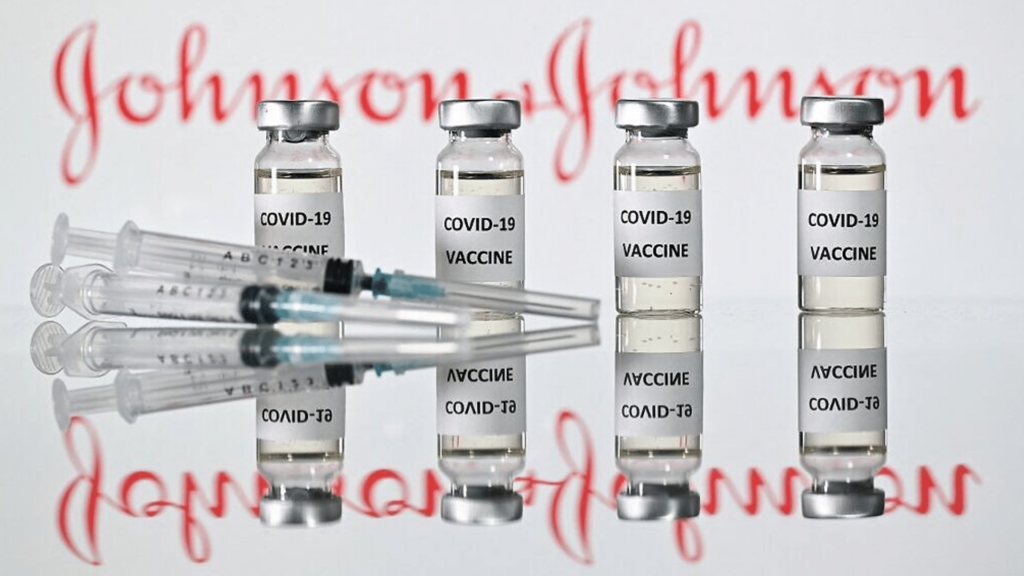The Johnson & Johnson Covid-19 vaccine has been paused nationally by federal health officials as six women experienced severe blood clotting after being administered the injection. This single-dose vaccination seemed to enthuse Americans initially as they would save a second trip to receive the second dose.
The U.S. Centers for Disease Control (CDC) and Prevention and the Food and Drug Administration (FDA) said Tuesday they are recommending a “pause” in the use of the vaccination, out of an “abundance of caution.” The reports presented rare and potentially dangerous blood clots which could affect mostly women between the ages of 18 and 48.
CDC’s And FDA’s Mutual Statement
The two agencies said in a joint statement on Tuesday they are, “reviewing data involving six reported U.S. cases of a rare and severe type of blood clot in individuals after receiving the J&J vaccine.”
Dr. Anne Schuchat, principal deputy director of the CDC, and Dr. Peter Marks, director of the FDA’s Center for Biologics Evaluation and Research said, “In these cases, a type of blood clot called cerebral venous sinus thrombosis (CVST) was seen in combination with low levels of blood platelets (thrombocytopenia). “All six cases occurred among women between the ages of 18 and 48, and symptoms occurred 6 to 13 days after vaccination.” The statement added that these unfortunate events appear to be significantly rare.
Virtual News Briefing
After the announcement, Marks spoke at a virtual news briefing saying that symptoms averaged about a week to nine days after the vaccination, but took no longer than three weeks to appear. Schuchat chimed in to describe CVST as a “stroke-like” illness. She clarified that the symptoms are different than those of a mild-flu that people may experience after receiving the vaccine.
“I know that the information we are providing today will be very concerning to Americans,” she stated, referring especially to to people who have already been injected with the Johnson & Johnson vaccine.
Both Schuchat and Marks recommended that this category of people should look out for symptoms which signify an issue. Individuals experiencing severe headache, abdominal pain, leg pain, or shortness of breath within three weeks of getting the shot should reach out to a doctor.
ADVERTISEMENT
Pfizer And Moderna Replace Existing Johnson & Johnson Appointments
The big question asked by many concerned individuals who have already scheduled a Johnson & Johnson vaccine appointment was whether it would get cancelled. Jeffrey Zients, the White House coronavirus coordinator assured the American people that there are enough Pfizer and Moderna vaccines available to replace the shortfall in the Johnson & Johnson vaccine.
He said, “we are working now with our state and federal partners to get anyone scheduled for a J&J vaccine quickly rescheduled for a Pfizer or Moderna vaccine.”
Twitter Reacts Negatively
Since more than 6.8 million Johnson & Johnson vaccines have already been administered, and only 6 of those cases appeared as severe, people found the CDC’s and FDA’s decision to stop the particular vaccine as unnecessary. Twitter users were extremely vocal regarding the issue raising valuable points to contradict this decision.
Every article about J&J should include the sentence “There have been more Air Bud movies than people harmed by the Johnson & Johnson vaccine”
— Jess Dweck (@TheDweck) April 13, 2021
We ban the Johnson & Johnson vaccine because 6 people out of 6.8 million got blood clots? Let’s talk about what guns do…
— Andrea Junker (@Strandjunker) April 13, 2021
Just 6 out of 7 million got blood clots from the Johnson & Johnson vaccine
316 people are shot in the U.S. every single day, 106 of them dying
By that logic, shouldn’t we halt guns, too?
— Lindy Li (@lindyli) April 13, 2021
ADVERTISEMENT
https://twitter.com/OweeeeenDennis/status/1381993516331454471?s=20
https://twitter.com/stevecot/status/1381986462313414659?s=20
https://twitter.com/rachelbagleyy/status/1381953582312865795?s=20
Pfizer and Moderna taking a moment of silence at J&J’s burial pic.twitter.com/HZXOPrEGOM
— crazy broke asian (@tribranchvo) April 13, 2021
Many compared this circumstance presented to the Oxford-AstraZeneca vaccine which faced a similar issue. Last week however, the European Union’s drug regulator decided to re-administer the vaccine as the benefits outweighed the costs. Likewise, the J&J vaccine that is currently under review may end up with the same result.









